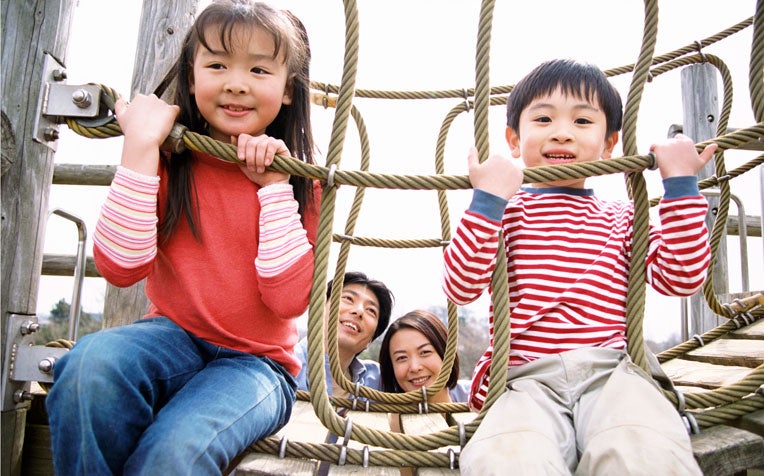HealthXchange will NEVER ask you to transfer money over a call. If in doubt, call the 24/7 ScamShield helpline at 1799, or visit the ScamShield website at www.scamshield.gov.sg.
Exercise: Recommendations by Children’s Age Group

Exercise has physical, social, emotional and cognitive benefits for kids.
Daily exercise is essential for the healthy growth and development of children.
“Beyond physical benefits, exercise positively influences the mental, emotional and cognitive development of children,” says Mr Micheal Lim, Head and Senior Clinical Exercise Physiologist, Sports Medicine Programme, KK Women’s and Children’s Hospital (KKH), a member of the SingHealth group.
Benefits of exercise on children
Exercise can help children in the following ways:
-
Physical benefits
- Healthy growth of muscles, bones and ligaments
- Improved motor skills
- Better sleep
- Healthy body weight
- Good cardiovascular health
-
Social benefits
- Enhanced social skills and interpersonal relationships
-
Emotional benefits
- Increased self-confidence, self-esteem and self-concept
- Reduced stress and anxiety
-
Cognitive benefits
- Better focus, concentration and academic performance
In general, children should engage in at least 60-90 minutes of moderate to vigorous intensity physical activity per day. Moderate intensity is when the heart is beating harder and breathing is faster than normal. The activities can be accumulated in short bouts of 10-15 minutes and include unstructured play and structured sports.
“Children are active in an intermittent way and alternate between short periods of activity and short periods of rest. Every minute counts towards the recommended guidelines,” says Mr Lim.
Physical exercise for children can begin as early as the age of one with unstructured play. Playing in the park or playground can progress to more structured games that include running, jumping, catching and throwing a ball. As children get older they can participate in competitive sports.
“Since children grow and develop at different rates, the emphasis and activity recommendations vary among age groups,” says Mr Lim. “Activities for children should match their age, skill level and maturity.”
Recommended physical activities for children aged 1 – 6 years
Physical activity in the first few years of a child’s life sets the foundation for acquiring more complex sports skills in later years. It also develops skills that are useful for daily living.
Between the ages of 1 and 6, children should be involved in unstructured play with minimal rules. The goal is to make physical activity a fun part of daily life. The activities should encourage kids to explore their body function and learn in different physical environments. They should provide opportunities for them to develop fundamental movement skills.
These skills are classified into three broad categories:
- Locomotor: These are the most important and allow the body to travel through space. They help foster muscular growth, endurance and coordination.
- Object control: These foster good coordination, e.g. catching a ball.
- Stability: These help keep the body in balance during movement, e.g. bending over to retrieve a ball.
“Teaching fundamental movement skills is akin to teaching a child ‘ABC’,” says Mr Lim. “Having poor fundamental skills has been shown to create a barrier to participating in sports and other physical activity, and having an active and healthy lifestyle in later years.”
Recommended physical activities for children aged 1 – 6 years include:
- Playing in the park or playground on monkey bars, swings, beam balance
- Games such as tag, hopscotch, horse chase
- Ball games
- Cycling, swimming, gymnastics
Read on for the recommended physical activities for children aged 6 and above, and more tips for parents.
Ref: S13
Related Articles
Public Events
Get the Health Buddy App
© 2025 SingHealth Group. All Rights Reserved.

















 Get it on Google Play
Get it on Google Play